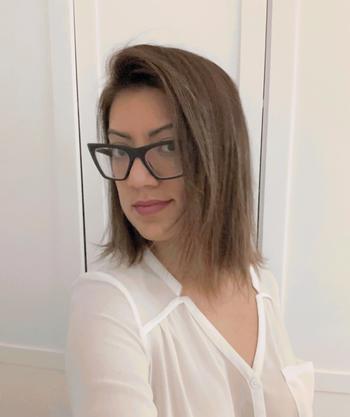Erum Naqvi (Pratt Institute, NY)
Early Career Fellow in Research Area 2: "Travelling Matters"
January–June 2021
Reimagining the Present, Re-reading the Past: Digital Intermediality and Experimental Performance in Iran
For the last 150 years, Iranian artists have grappled with embracing (and resisting) efforts to transform indigenous oral performance traditions into canonical practices that speak to (or "are readable by") global audiences. This history encompasses several competing communities with differing ideologies about (1) the importance of notation, canonisation, and documentation (in the late-Qajar era, or early 1900s), (2) the transformation of indigenous practices (which typically blend music, dance, and drama) into distinct, internationally recognised genres such as dramatic theatre, classical music, and ballet/national dance (in the Pahlavi era, 1924-1979), and (3) isolationism about transcultural aesthetic influences (after the 1979 revolution). Today's emerging experimental performers increasingly draw on such historical debates to mediate concepts such as "traditional practice" and "nationhood/authentic cultural expression" so that they can widen the scope of permissible practices in the public arts, notably by making space for marginalised indigenous traditions and transcultural influences. Intersections with material culture—especially texts and digital media—play an important role in this regard. Performers who want to rediscover fractured or marginalised indigenous practices often rely on texts, (very) early recordings, films, and ethnographic documentation that were not widely available in post-revolutionary Iran prior to the digital era. Experimentalists leverage such resources to reimagine Iranian artistic expression in a way that both celebrates its diverse indigenous oral traditions and reflects the deeply intermedial evolution of Iran’s performing arts history of the last two centuries. This project, situated in the "Travelling Matters" research area of EXC 2020, addresses artistic communities who reread the past (which also transformed itself multiple times over through similar intermedial dialectics) to reimagine the present. Such "reading," and its inherent exploration of media, communities, ideologies, and hierarchies, forms the methodological basis for contemporary artistic experimentation in Iran.
Erum Naqvi (Ph.D., Temple University, 2015) is an interdisciplinary social scientist working at the intersection of philosophy, ethnomusicology, and comparative studies. She specialises in comparative aesthetics, transcultural exchange, conceptual genealogies of performing arts, embodied creativity, and artistic experimentation—with emphasis on indigenous, oral performance traditions that grapple with formalist aesthetics (rooted in European enlightenment thought) when seeking wider global recognition. Select publications under this research umbrella, predominantly based on ethnographic field work in Iran, explore evolutions in classical music ("Gigging 'Classical' in Iran," Popular Communication 15:3 2017, 221-232), broadcast media ("The Curious Case of 'Good Morning Iran:' Music and Broadcast Regulation in the Islamic Republic," Music, Education, and Religion: Intersections and Entanglements, Indiana University Press, 2019, pp. 196-207), and musical theatre ("Reinventing Ruhowzi: Musical Experiments in Contemporary Iranian Theater," Middle East Journal of Culture and Communication 13:1 2020, 28-48). Her current research centres on emerging Iranian artists who experiment with reviving diverse indigenous traditions, exploring intercultural dynamics, and navigating shifting ideas of cultural authenticity in the public sphere.
